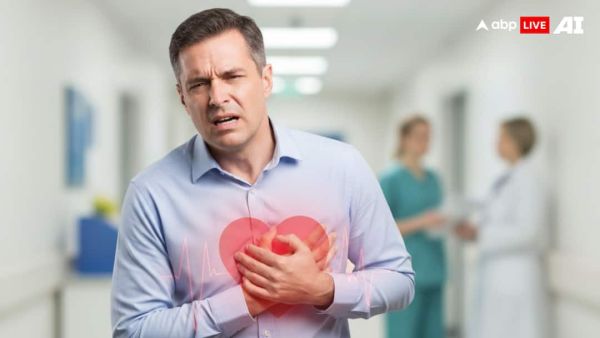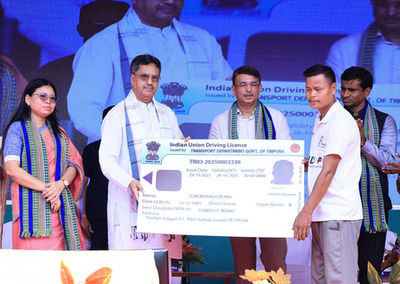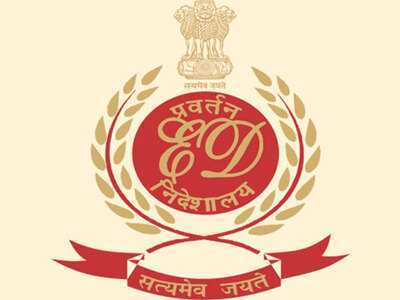
In today's fast-paced world, heart disease continues to be one of the leading causes of death globally, and India is no exception. While dramatic, crushing chest pain is often associated with heart attacks, many cardiac events begin with subtle, easily-missed symptoms that mimic everyday issues like acidity, fatigue, or stress. Experts warn that these "silent" signs can be just as dangerous, particularly when ignored or misinterpreted.
To help people understand how to identify these early indicators, experts emphasise the importance of recognising warning signs and seeking timely medical attention through regular screenings and preventive check-ups.
When Acidity Or Anxiety Is Actually A Warning From The Heart
"In today's fast-paced life, people often assume that chest tightness or heart fluttering comes from stress or caffeine," says Dr. PRLN Prasad who is the Consultant - Interventional Cardiologist at Gleneagles BGS Hospital Kengeri Bengaluru
"But when those sensations are accompanied by breathlessness, jaw or shoulder pain, or a feeling of 'impending doom,' it could be your heart trying to get your attention. Another overlooked sign is unexplained sweating or nausea, especially if it occurs without physical exertion" he futher explains.
Dr. P L N Kapardhi, who is the Clinical Director, Cath Lab & Sr. Interventional Cardiologist at CARE Hospitals, Banjara Hills, Hyderabad, echoes the concern, noting that subtle signs are often ignored until it's too late. "Many of my patients describe their first warning signs as vague chest discomfort, a burning in the upper abdomen, or an odd sense of heaviness after meals. Others report an unexplained sense of anxiety or pressure in the chest, sometimes radiating to the jaw, back, or left arm," he explains.
"What's dangerous," he adds, "is that these sensations can come and go for days before a major cardiac event. When these episodes occur with sweating, breathlessness, or dizziness."
When Fatigue Signals More Than Just Tiredness
"When the heart is under strain, tiredness takes on a different quality," notes Dr. Prasad. "It feels weighty and constant, the kind that doesn't lift even after proper rest. You may notice your energy slipping away sooner than usual, or wake up still feeling drained. Everyday activities, like walking briskly or climbing stairs, can start to leave you short of breath or needing to slow down more often than you used to. Think of it as the body's way of rationing energy because the heart isn't circulating oxygen efficiently."
Dr. Kapardhi further clarifies the difference between routine tiredness and cardiac fatigue. "Cardiac fatigue is different from everyday tiredness. It tends to appear even after minimal exertion, climbing a few stairs, taking a short walk, or doing routine chores. People often say, 'I just don't have the same stamina,' or 'I feel drained for no reason.' If rest doesn't restore your energy or if fatigue comes with breathlessness, chest tightness, or ankle swelling, it's time to get checked," he advises. "The heart may be struggling to pump efficiently, even if pain isn't obvious."
Lifestyle Triggers Behind 'Silent' Heart Issues
While genetics play a role, lifestyle factors are often the main drivers behind hidden cardiac stress. According to Dr. Prasad, it’s often not a single bad habit but a combination of everyday stressors that silently wear down heart health, the key lifestyle factor includes:
- Emotional burnout and constant mental pressure
- Erratic eating schedules and unhealthy dietary patterns
- Sedentary lifestyle with minimal physical activity
- Chronic sleep deprivation
- Regular consumption of processed foods
- Ignoring fatigue, especially among women balancing multiple roles
- Ongoing low-grade stress that strains the body over time
- Atypical or muted symptoms in elderly individuals and those with diabetes, making early detection harder
How Heart Attack Symptoms Differ In Men And Women
While men often experience the 'classic' heart attack signs, women tend to have subtler and easily overlooked symptoms. Here are some signs that Dr. Kapardhi emphesises:
- Men usually experience the textbook symptoms, such as chest pressure, heaviness, or pain radiating to the arm.
- Women, on the other hand, may have less typical warning signs, such as:
Jaw pain or discomfort,
Nausea or an unsettled stomach,
Back or shoulder pain,
Unexplained shortness of breath, even without chest pain. - Many women do not feel sharp or crushing pain, which often leads to a delayed diagnosis.
- Any sudden or unusual physical distress, especially occurring at rest or during sleep, should never be ignored.
[Disclaimer: The information provided in the article is shared by experts and is intended for general informational purposes only. It is not a substitute for professional medical advice, diagnosis, or treatment. Always seek the advice of your physician or other qualified healthcare provider with any questions you may have regarding a medical condition.]
-
Tripura allocates over 40 pc of 2025–26 budget for tribal areas' development: CM Saha

-
Chelsea chiefs make decision on scrapping Enzo Maresca plan after Qarabag let-down

-
Celebrating 150 Years of 'Vande Mataram': A Tribute to India's National Song

-
Usha Venugopal impressed by Banaras Locomotive Works's technical excellence and work culture

-
ED summons industrialist Anil Ambani on November 14 in FEMA case
